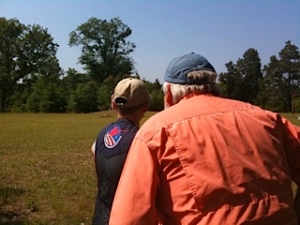 Last night I worked with a particularly dynamic coach, staff and team. A previous clinic had awakened the sleeping giants in the players, as they had been shell-shocked from a negative prior coaching experience.
Last night I worked with a particularly dynamic coach, staff and team. A previous clinic had awakened the sleeping giants in the players, as they had been shell-shocked from a negative prior coaching experience.
But last night, after applying my system for only a couple of months, and reinforced by their new coaches’ style of leadership, they were a completely different group of players. They were boisterous but respectful, loud but in the Zone, supportive and leadership-driven, yet humble enough to understand what they still didn’t know.
As were the parents in attendance. Yes, the parents. And they positively beamed.
Parents are a part of the team
I include parents in the clinics, at least the few interested ones, because they need to know what their children are learning and they can also benefit by learning the same tools, an effective process I use in my Skype clinics for parents and their teen athletes.
I know some of you must be saying that this must surely squelch the enjoyment of the kids. My answer — only if you’re having the kids share their very emotional experiences. However, with a systems approach, there are no emotional experiences to share, only high performance tools that any ten-year old can learn.
Parent mentors have just as important a role to play as technical coaches
As the process is basically the very same as a technical coach teaching specific gun mounts and hold points and target tracking strategies, children are often delighted to be learning the high performance strategies alongside parents who can support them. Parents learn to be just as empowered as their child and just as empowering as their children’s coaches. And in the process, they learn the difference between being a mentor and a spectator.
Parents can certainly be spectators if they want and they can follow the emotional ups and downs of their child competitors, which is sure to fail as children can’t tell the difference between a sad parent’s “disappointment for them” and a flustered parent’s “disappointment in them.”
Or parents can be mentors and be wired as leaders and powerful beacons to their children. And when they apply this process and assist their young athletes to recover quickly from adversity, their relationship flourishes. Because, in spite of whatever may have just happened on the range, the child can now turn to the parent and trust that the parent will be sending all the “right” signals.
How to get started on becoming your child’s mentor
Parents love this process; their children love it; the synergy is unbeatable, and there is  something you can do at the next competition to start being a mentor to your child. As you sit in the bleachers watching the practice or competition, think of YOUR BEST performance in any sport, your business or your life. Not your child’s best performance, yours.
something you can do at the next competition to start being a mentor to your child. As you sit in the bleachers watching the practice or competition, think of YOUR BEST performance in any sport, your business or your life. Not your child’s best performance, yours.
Notice how good it feels and then sit through the entire round or practice feeling that good feeling. You will sit straighter, smile more and maybe get a few comments from other parents. If you are guessing that this feeling is the Zone, you are right. If you are guessing that this may be hard work for you, you are right (at least initially, but it gets easier). And even if you find it pretty onerous, I think you’ll like it a lot better than going back to being a spectator.
Trust me; your child won’t know what hit him or her. And from time to time on your drive to the competition, at the competition and on the drive home, check in with your Zone feeling to make sure it is still there, as it will impact everything you are doing with your child. It is the same kind approach you can exercise at work or with your own squad or with the rest of your family, a very special type of mentorship that will last a lifetime.
We’d love your feedback. What do you believe the role of a parent is in their child’s sport? Fill out our anonymous poll below:


